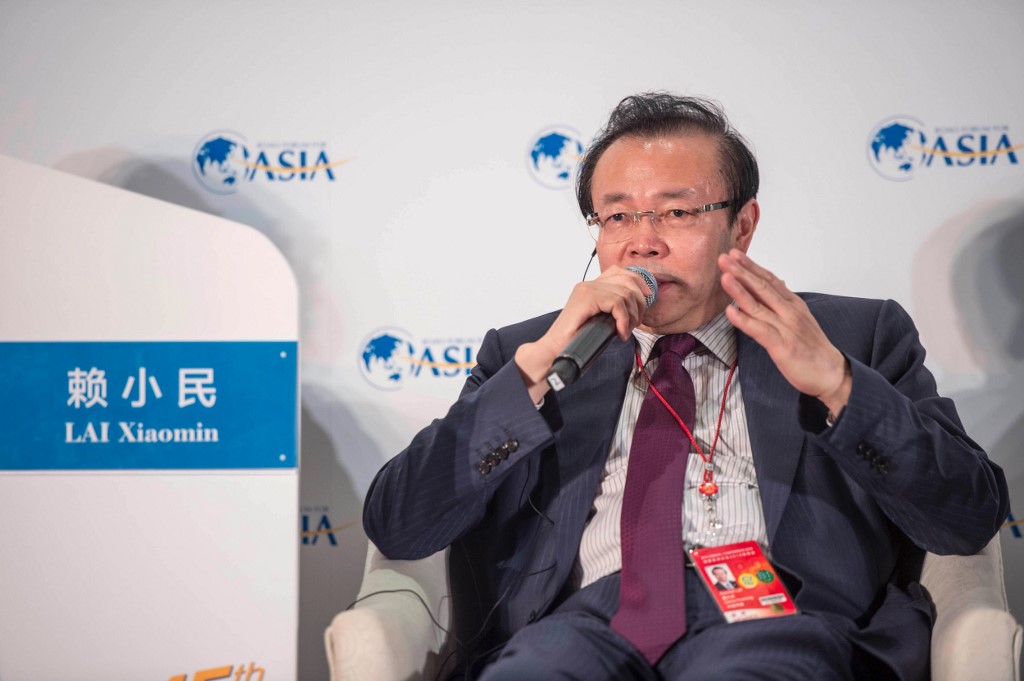(ATF) China on Friday executed a former top banker accused of taking $260 million worth of bribes, as well as other forms of corruption and bigamy, state media outlets reported.
Lai Xiaomin was an infamous figure, a high-ranking party official and the former chairman of Huarong – one of the country’s largest state-controlled asset management firms.
Lai was given a death term on January 5 by Tianjin No.2 Intermediate People’s Court after he confessed and all the money and property he accumulated over many years – said to be a record sum – was seized by state officials.
Lai appealed for leniency but this was rejected by both Tianjin Higher People’s Court and the Supreme People’s Court.
The Supreme People’s Court confirmed the outcome after conducting a review. It said that, as a national worker, Lai Xiaomin used the convenience of his position to seek benefits for others, and took advantage of his power and status to seek illegitimate benefits by influencing the conduct of other workers. He solicited and illegally accepted property totaling more than 1.788 billion yuan, CCTV reported.
Lai had a wife but had long been with others “living in the name of husband and wife’ and was thus convicted of multiple counts of bigamy.
The Supreme People’s Court said Lai Xiaomin’s crimes of bribery, corruption, and bigamy were extremely serious, so he should be severely punished. The amount of bribes Lai received was extremely large, the circumstances of the crimes very serious, and the social impact particularly severe. It caused heavy losses to national interests and the people.
While Lai had performed significant meritorious service, the facts, nature, circumstances and the degree of harm to society of his crimes were not sufficient for leniency, it said.
After receiving the criminal and execution order from the Supreme People’s Court, the Tianjin Second Intermediate People’s Court announced the death penalty and executed Lai Xiaomin, after he met with close relatives.
Chinese courts have a conviction rate of over 99 percent, and it is extremely rare for a death sentence to be overturned.
The number of executions carried out annually is considered a state secret, but rights group Amnesty International estimates the country executes the most people globally, with thousands put to death each year.
Luxury cars, gold bars
Earlier, Tianjin court ruled that Lai had shown “extreme malicious intent” and abused his position not only to obtain tonnes of money that he was too scared to put in the bank, but also fathering illegitimate children with additional wives.
His fall from grace began in April 2018 when investigators removed him from his job and stripped him of his Communist Party position. He had previously worked in the central bank and the China Banking Regulatory Commission.
Lai gave a televised confession to CCTV last year, which included footage of cabinets stuffed with cash in a Beijing apartment allegedly belonging to him, as well as luxury cars and gold bars which he allegedly accepted as bribes.
It is common practice for CCTV to air “confessions” by criminal suspects, including former officials, before they appear in court, but the practice is condemned by rights groups as coercive.
Lai’s downfall has been one of the country’s biggest financial scandals, and comes as Beijing takes an increasingly tough stance on corporate wrongdoing.
At the same time, a wide-ranging anti-corruption campaign launched under President Xi Jinping has also served as a way to target his opponents and those of the Communist Party leadership, critics say.
The former real estate tycoon Ren Zhiqiang was jailed for 18 years last year after writing an essay critical of Xi, and billionaire Xiao Jianhua was abducted from Hong Kong by Chinese agents in 2017 after regulators launched an investigation into his sprawling investment empire, Tomorrow Group.
























